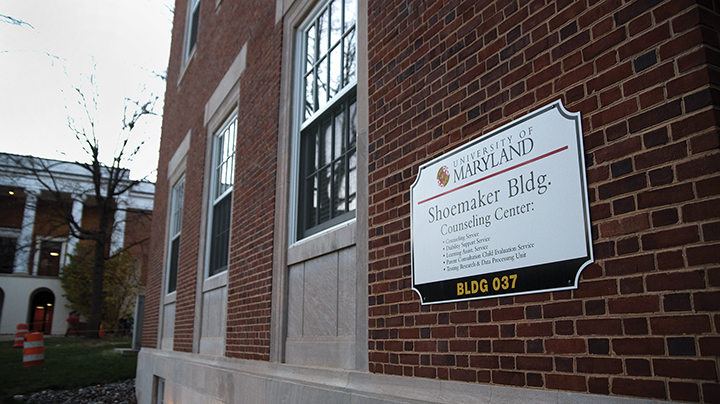Views expressed in opinion columns are the author’s own.
Over the past decade in this country, significant progress has been made in reducing the social stigma of seeking help for psychological problems. On college campuses, this has generated increases in the number of requests for services at counseling centers.
At the University of Maryland Counseling Center, requests have risen 24 percent in the past three years.
The staff at the Counseling Center applauds this university’s students for raising awareness of the importance of college student mental health. Student groups such as Active Minds, the Student Government Association and Scholars Promoting and Revitalizing Care are educating our community about tending to mental health, confronting stigma by normalizing help-seeking and advocating for sufficient resources for the growing numbers of individuals who are willing to seek services on this campus and in the community.
[Read more: The UMD Counseling Center will create 3 new psychologist positions]
The Counseling Center is committed to helping students in need. We strive to provide timely initial consultation appointments to determine the nature and impact of the problems and identify appropriate treatment options.
Students should know that if they are experiencing a mental health crisis, the Counseling Center provides same-day emergency appointments with a counselor to address the crisis and discuss the best approach for treatment.
Although there are some periods when surges in the volume of requests at the Counseling Center cause an extended wait for certain services, we generally can schedule consultation appointments with a therapist within two weeks of the appointment request.
Beyond the consultation session, assignment of non-urgent cases to ongoing individual counseling sessions with a therapist may be delayed when appointment requests climb.
This typically occurs prior to midterm exams and final exams. Again, even during peak periods, we prioritize students facing urgent issues and provide them with immediate emergency appointments. After hours, students have access to a free crisis call-in service staffed by mental health professionals.
The majority of appointment requests are for non-urgent situations. In some cases, the consultation appointment is successful in helping students gain insight into their problems and acquire strategies for improving their academic and personal functioning.
When ongoing individual counseling sessions are recommended by the therapist, students typically have the option of waiting for a Counseling Center therapist or receiving a referral from our care manager to an off-campus provider who may be available sooner.
Depending on the issues of concern, other Counseling Center services may be recommended. These include group therapy and workshops targeted at anxiety and depression.
[Read more: This student group says counseling comes “30 days too late” at UMD]
We continually evaluate our services to provide the most timely support we can to our students. We will continue to collaborate with student advocacy groups and student leaders to improve access to mental health services and expand service options for the growing numbers of help-seekers.
New approaches have been added, such as online therapy, and students have raised with us the possibility of an additional student fee that would contribute to new resources.
We hope that clarifying service procedures at the Counseling Center will help answer questions about access to our services and alleviate concerns about possible wait times. No student in urgent need should avoid contacting the Counseling Center for help.
The Counseling Center is committed to supporting the mental health needs of students at this university. We are open, and our caring and professional staff are here for you.
Sharon Kirkland-Gordon is the director of this university’s Counseling Center.



